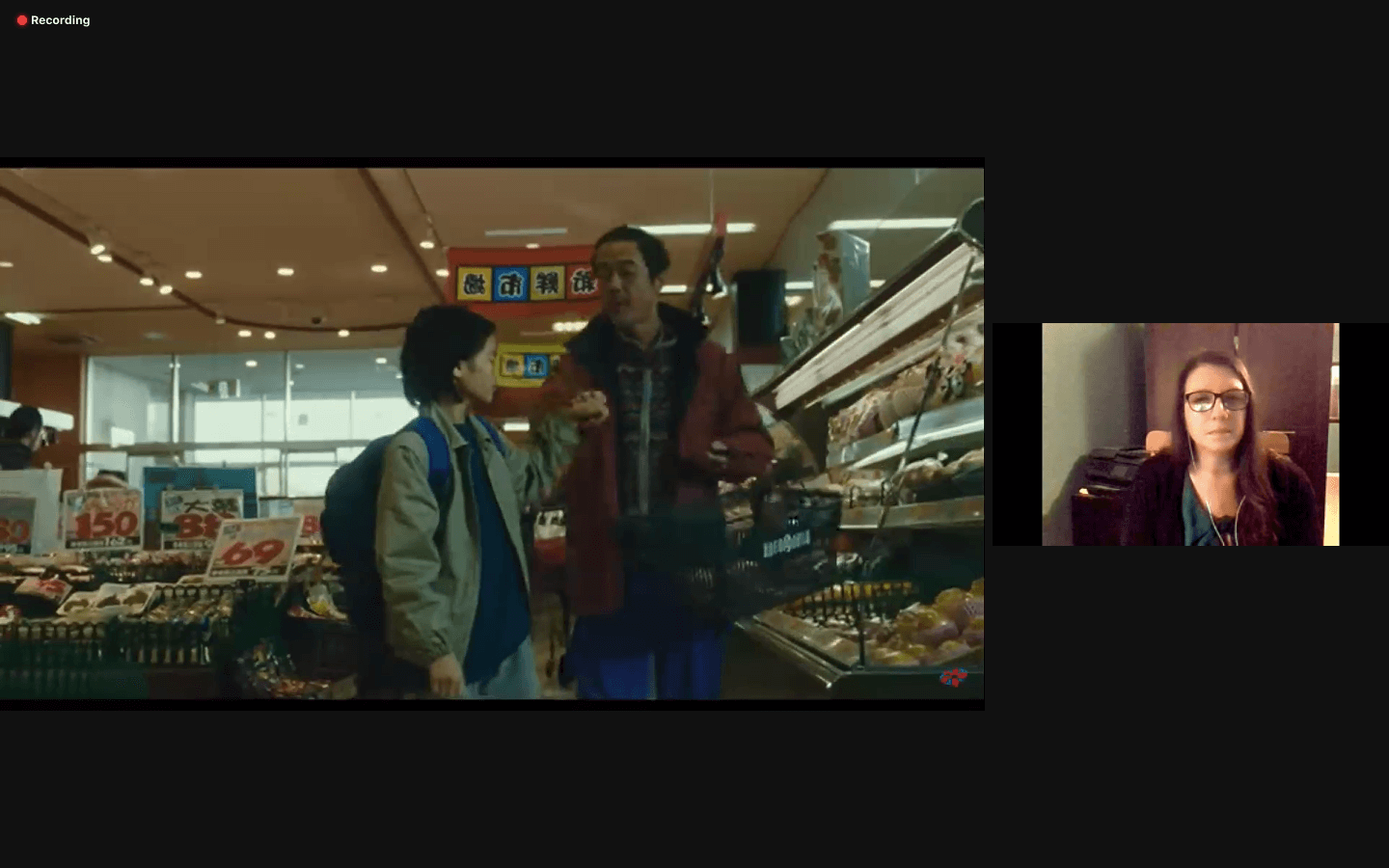By Grace Joyce

On February 9, 2022, the 2021-2022 World Cinema Series conducted a virtual discussion of the 2018 crime/drama film, Shoplifters. Directed by Hirokazu Koreeda, the film was the Palme d’Or award winner at the Cannes Film Festival in 2018, as well as the Japanese Academy Award winner for Prize Picture of the Year in 2019. It also received an Oscar nomination in 2019 for Best Foreign Language Film.
This emotional story tackles themes of crime, isolation, poverty, and most importantly emphasizes that family goes beyond DNA. It follows a “family” of six living in Tokyo in a small, overcrowded hut with inadequate income to support themselves. In this hut resides a man named Osamu; the mother, Nobuyu; a woman, Aki; the grandmother, as well as a boy named Shyota and a girl named Yuri. While this group is not related by blood, the isolation they feel and conditions they face together created an incredibly strong bond among them as they participate in petty theft to be able to survive.
The film opens with Osamu and Shyota moving up and down the aisles slowly in a store and it soon becomes clear that theft is a part of their normal routine through their nonverbal communication and eye contact. Upon leaving the store, the two find a young girl outside on a freezing cold night who appears scared and not well taken care of, and this is the introduction of Yuri. An agreement is made to bring her home, not realizing that her abusive parents would end up searching for her after her disappearance. As Yuri acclimates to her new family’s lifestyle of petty crimes, secrets begin to unfold and the family’s bonds are truly put to the test.
The first panelist was Dr. Rekha Datta, the Freed Endowed Chair of Social Sciences and professor in the Department of Political Science and Sociology. She offered insights on several topics: (1) family and motherhood, (2) gender, and (3) criminality and ethics. Dr. Datta emphasized how strong the bonds were within this family regardless of the fact they were not blood related, and discussed how Nobuyo took on the mother role for Yuri, which posed the question of what truly makes a mother.
She briefly discussed the role of gender as we see that the women, Aki and Nobuyo, work in the sex trade while Osamu and Shyota do the shoplifting. Dr. Datta also brought up the significance of criminality and ethics, as the family’s living conditions present the viewer with the moral question of whether it is really stealing when it is solely things needed to survive and which are not being sold for profit.
Prof. Frank Cipriani, specialist professor in the Department of World Languages and Cultures, focused on the cinematography of the film. He noted the symbolism reflected in the color schemes and soundtrack. The color choices provide us with emotional clues, as blue represents love and memory while red represents the past. As for the soundtrack, Prof. Cipriani observed that while the soundtrack is very minimal, the characters are represented by separate instruments but when they are together, they join in the same tune and create an orchestra, which represents the family.

